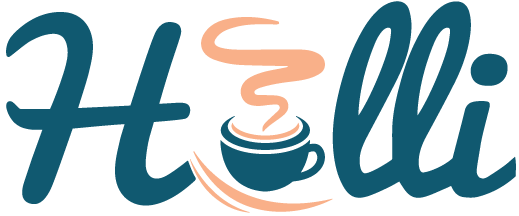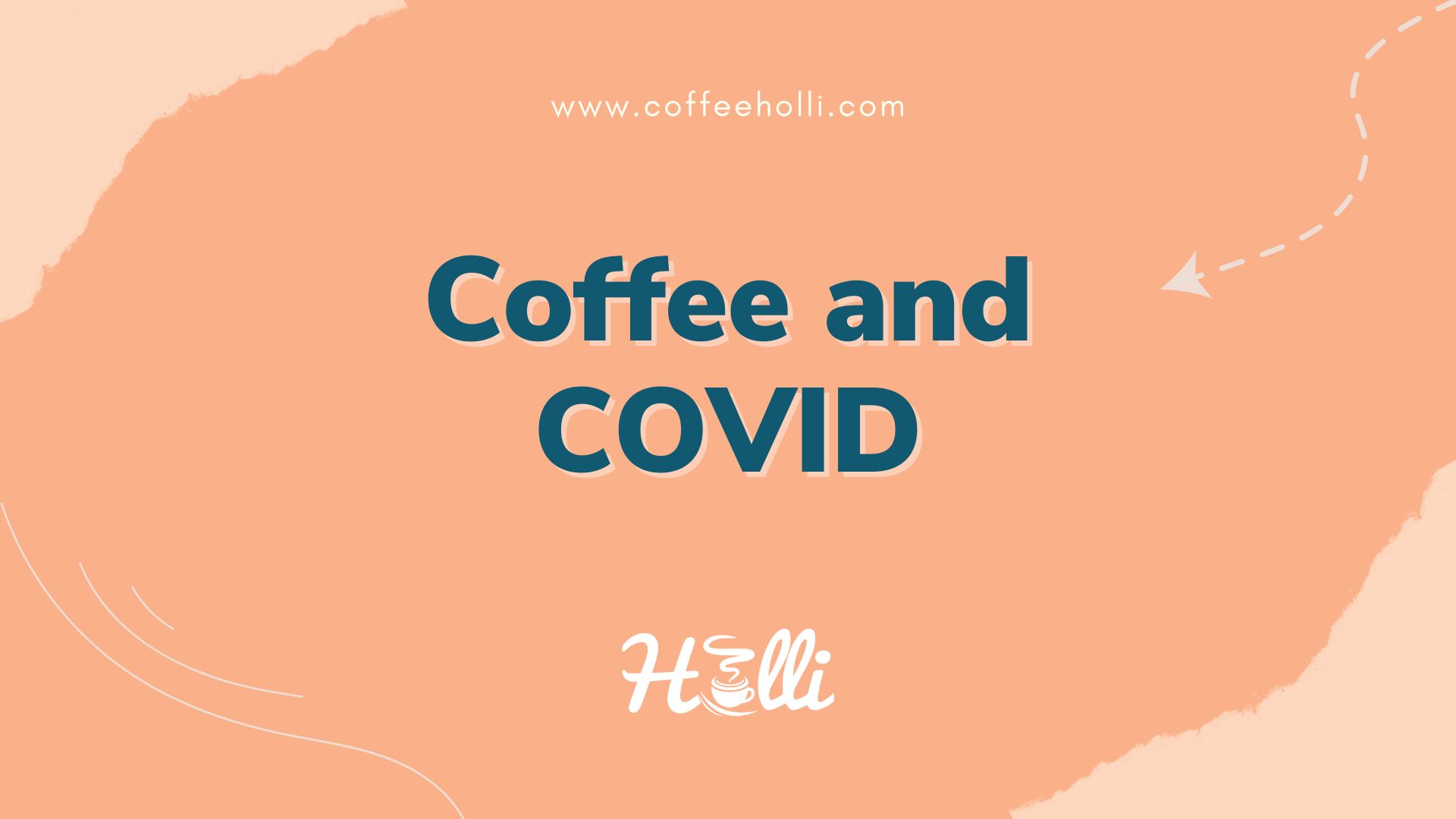January 21st, 2020.
That’s when the first COVID-19 case was reported in the US, a month after the virus was first recorded in Wuhan, China.
And from that moment, the world started experiencing the deadliest plagues of our time.
3 years later, there have been more than 600 million cases and more than 6.5 million deaths, worldwide.
Luckily, we are in a much better position and have made huge progress in handling the pandemic.
In less than a year after the first COVID-19 case was reported in the US, FDA approved the first vaccine, the Pfizer vaccine.
As of August 2022, there are more than 34 COVID-19 vaccines that have been approved by different regulatory authorities.
Table of Contents
Is COVID-19 still a thing in 2024?
While we are in a much better position, every day between 10,000 and 15,000 people are still dying from Coronavirus.
So:
Get vaccinated and take all other precautionary measures.
This article provides insights on questions regarding coffee and COVID-19. Below is a list of things I will cover.
- How to order and drink coffee safely
- Whether coffee protects you from COVID-19
- Whether you should drink coffee if you have COVID-19
- Whether you should drink coffee on the day of vaccination
- Why all of a sudden coffee disgusting
With that out of the way, let’s get into it.
Is it safe to buy and drink coffee right now?
Yes. It is safe to buy and drink coffee, whether you have the virus or recovering.
As of today, researchers and medics say COVID-19 cannot be transmitted through food or food packaging.
Whether you are buying coffee beans to grind at home or buying takeaway coffee from your local coffee cafe or drive-through, there are almost zero chances that you can get coronavirus from the drink or packaging.
While a cup of your favorite coffee drink cannot fully protect you from contracting COVID-19, it will boost your mood, support your brain health, and lower the risks of getting type 2 diabetes thanks to its powerful antioxidants.
But I digress
COVID-19 is mainly transmitted from a COVID-positive person to another person through contact or respiratory droplets.
Basically:
When a COVID-positive person sneezes, coughs, or breathes and the virus-containing droplets contact the mouth, nose, or eyes of the other person.
Or:
If the virus-containing droplets get on the hands and the person touches the eyes, mouth, or nose without disinfecting the hands.
However:
Just like other coronaviruses, the COVID-19 virus can survive on surfaces for days. Authorities say there is a risk of catching COVID-19 from touching an infected surface but that is not the major transmission method.
That’s why it is recommended to regularly clean your hands and regularly disinfect surfaces, using disinfectants containing either ethanol, quaternary ammonium, or hydrogen peroxide.
- Plastic – up to 5 days
- Wood – up to 4 days
- Glass – up to 4 days
- Stainless steel – up to 2 days
- Paper – 4-5 days (this is where coffee packaging falls)
- Surgical gloves – 4-5 days
Note:
Covid-19 is one of seven coronaviruses. Coronaviruses are specific viruses that cause respiratory and intestinal illnesses.
To keep yourself safe and protect your loved ones, there are several things you can do when ordering coffee beans or takeaway coffee.
How to handle coffee beans
Now:
If you are buying coffee beans and you are worried about the handlers, there are few things you can do.
First:
When expecting the delivery, prepare an opaque and air-tight container for storing the beans.
When the beans are delivered, avoid close contact with the delivery person. Then remove any excess packaging materials and dispose of it immediately.
Then:
Open the coffee beans package and empty the beans in the coffee container and store them properly. There is no need to sanitize the package.
To maintain the quality, the container should be opaque and airtight. Avoid clear containers as they allow light in. Then keep the container in a dark location at room temperature.
After you have emptied the beans, dispose of the packaging. When doing all this, don’t touch your eyes, nose, or mouth. After you are done, wash your hands with soap and water for more than 20 seconds.
How to handle drive-through takeaway coffee
Now:
As I mentioned above, COVID-19 cannot be transmitted through food and drinks. The only risk is the coffee container, that is if the person who held it has the virus.
While there are very low chances you can get COVID-19 from the coffee container, taking precautionary measures is always a great idea.
Here are a few things you can do when buying takeaway coffee.
First, avoid in-person ordering since you will be in contact with other customers and employees. Instead, order through the drive-through where there is minimal contact.
Secondly, order and make the payment through the app, if the coffee shop has an app. Avoid paying with cash, instead, use card payment.
Thirdly, while it’s not a must, you can pour the coffee from the takeout container, into your home mug. Don’t hand over your mug to the servers, do it yourself and dispose of the takeaway container.
The best thing is that most coffee shops have protective measures to keep you and their employees safe.
How are coffee shops keeping their employees and customers safe?
Most coffee shops have put measures in place to keep their customers and employees safe from contracting COVID-19.
Some common measures across coffee shops include
- Routine cleaning and disinfecting of surfaces.
- Encouraging customers to order and pay via the apps
- Encouraging home delivery and curbside pickup
- Provision of protective gear and equipment to the staff.
- Allowing staff not to report to work if they feel sick even on short notice.
- Regular testing of their staff.
- Encouraging staff to get vaccinated.
- Paid time off when going for vaccination.
- Paid rest in case of vaccine-related side effects.
- Encouraging customers to mask when indoors.
- Provision of hand washing and sanitizing stations.
- Discouraging customers from bringing their thermos and mugs to avoid contamination
- Limiting contact between employees and customers
- Training employees on how to protect themselves and customers
- Regulating the number of customers inside the premises.
However, the specific measures change from one coffee shop to another. To keep yourself safe, check what your local coffee shop or Starbucks is doing and what the local authorities are recommending.
Does coffee protect you from COVID-19?
Yes.
According to a study by Northwestern University in Chicago, drinking coffee, eating vegetables, and having been breastfed as a baby provide some protection against COVID-19.
On the flip side, eating processed meat makes you more susceptible to contracting the virus.
During the study, participants who drank at least one cup of coffee daily had a 10% lower risk of contracting COVID-19.
Participants who ate at least a half serving of raw or cooked veggies daily reduced the risk by 12% while having been breastfed reduced the risk by 9%.
The study considered 37,988 participants but only 17% of participants contracted COVID-19.
The study also considered tea, another drink that most of the participants took daily but had no effect on the risk of contracting the virus. This may be because tea has lower caffeine levels than coffee.
The above study is consistent with the Scientific Report of the 2015 Dietary Guidelines Advisory Committee that reported that drinking between 3-5 cups of coffee is associated with a lower risk of cardiovascular disease and type 2 diabetes in adults. The study also showed that caffeine intake lowers the risk of getting Parkinson’s disease.
Caveat.
Both the Centers for Disease Control and Prevention (CDC) and World Health Organization indicate that the best way to protect yourself from COVID-19 is to get vaccinated, wear a mask, and washing hands.
So, on top of taking coffee and vegetables, follow the guidelines provided by the relevant health organization.
Does coffee affect COVID-19 test results?
Now.
There have been rumors and videos going around especially on social media that coffee, soft drinks, and fruit juices affect COVID-19 results.
The videos were of people testing either Coca-Cola, fruit juice, or a caffeine-containing drink using a Lateral Flow Test (LFT) and the device would show two lines, which means positive.
But is it true?
While the LFT device will show two lines that does not mean these drinks have Covid. The test basically says that the device and results are corrupted because of incorrect use.
Here is why.
A Lateral Flow Test (LFT) device is fitted with a conjugation pad strip with antibodies attached to gold nanoparticles.
When saliva is tested and the virus is present the antibodies will bind with the virus and show a positive result. But before the sample is put in the lateral flow test, it is first dipped in a buffer to optimize the PH.
Now:
If you test caffeine and soft drinks, they will mess up the chemistry of the lateral flow test device since the samples have high acidity levels. Basically, the reason you will get a positive test when you test caffeine-containing drinks is because you have wrecked the chemistry behind the device.
This, however, is a significant downside since such testing can be used to spread propaganda. Also, these devices can mislead users if used incorrectly.
The do’s and don’t when self-testing depends on the specific lateral flow testing device you are using. Some kits will recommend not eating or drinking half an hour before testing. Others will recommend not using tobacco products, nasal sprays, chewing gum, and mouthwash just before testing.
While the specific conditions depend on the model you are using, I have not come across any COVID-19 test that recommends not taking caffeine before testing.
Does coffee help with COVID-19 fatigue
Now:
One of the side effects of contracting COVID-19 is persistent fatigue that can last for months even after you have recovered. The first major cause of fatigue is low oxygen levels because of breathing problems.
Other causes of fatigue are when the body produces an exaggerated immune response and when the body is not able to absorb enough nutrients. Fatigue is also sometimes the body’s response to fighting the virus.
While there is no known cure, there are several things you can do to help beat the fatigue.
- While your favorite cup of taste may taste disgusting, it may help you feel better. However, don’t exceed 2 cups in a day.
- Try being active. While the last thing the body wants to do when it’s fatigued is do more work, doing light activities may actually help. Be gentle and kind to yourself.
- If you are in a position, rest. Fatigue is the body’s response to fighting the virus. So the best thing you can do is to allow it to function.
- Try doing breathing exercises.
- Meditation and Yoga
If fatigue is not going away consult your doctor. Also, check if there are long-haul clinics in your area.
Is it OK to drink coffee while having COVID-19?
Yes, it’s safe to drink coffee while having COVID-19. There is no study showing that coffee can affect the recovery process.
Some benefits of drinking coffee include.
- Boosting energy levels
- Lower risk of falling into depression
- Supports liver health
- Supports heart health
- Lower risks of type 2 diabetes, Alzheimer’s disease, and Parkinson’s disease.
The major challenge with coffee is that it may taste different so you may not enjoy it. If your cup of coffee tastes delicious, you can enjoy the drink without worrying.
However, don’t exceed 2-3 cups in a day. Excess caffeine may affect your sleep. Remember, during recovery your body requires good sleep to help in healing and recovery. If your sleeping habits are negatively affected your body may take longer to heal.
Note:
Coffee is not among the most important foods and drinks for people recovering from COVID-19. The most important food for people with COVID-19 include.
- Food rich in Vitamin D such as Cod liver oil and sardine
- Food rich in vitamin A such as beef liver and sweet potato
- Food rich in zinc such as dark chocolate and cashew nuts
- Food rich in Omega-3 fatty acids such as salmon and chia seeds
- Food rich in vitamin C such as guava, kiwi, and cauliflower
The rule of thumb is a lot of veggies, fruits, legumes, and whole grains. Also, keep hydrated.
Why does coffee smell different after COVID-19?
2 years ago, the words parosmia and anosmia were unknown to many.
Today, these two words are a common vocabulary thanks to Covid.
What are they?
Parosmia refers to the distortion of the sense and smell because of a health condition such as COVID-19. On the other hand, anosmia is the complete loss of smell.
And that’s why your favorite cup of coffee smells differently or you can’t smell it.
How does it happen?
According to a study by the University of Reading, parosmia is triggered by 15 different molecules.
Among the 15 molecules is the furan-2-ylmethanethiol compound which is believed to cause parosmia. Furan-2-ylmethanethiol compound is a chocolate, burnt, and coffee-tasting compound that is a major component of roasted coffee aroma.
The study suggests that the brain miscategorizes this scent molecule leading to parosmia. Other foods that have been cited to trigger parosmia to people with COVID-19 include
- Garlic
- Onion
- Green peppers and
- Chicken
How has coffee affected the coffee industry?
Now:
The Covid-19 pandemic affected almost all industries, with air travel and hotels being among the worst hit industries.
So, how is the coffee industry?
When COVID-19 cases were at the top most countries issued lockdowns that lasted for months. The majority of people also started working from home.
However, people found this time mentally challenging with the majority of people saying they were worried, sad, and anxious.
Amidst this chaos, coffee provided some relief to most coffee lovers. Several studies show most coffee drinkers increased their intake by between 1 and 3 cups.
Basically, coffee is one of the few things that kept us going during the lockdowns.
While the coffee intake went up, some sectors were struggling, especially the majority of the 25 million small-scale farmers spread across the globe. For them, farming input became more expensive adding to the cost of production.
Another sector that got a positive boost is e-commerce. When people started brewing coffee at home, coffee e-commerce shops reported more sales. On the other hand, coffee shops and cafes got hit because of the lockdown.
Where to get reliable information about COVID-19?
There has been a lot of propaganda around COVID-19. To keep yourself safe, countercheck everything you read online with what health organizations are saying. The most credible sources of COVID-19 information include
- World Health Organization
- Centers for Disease Control and Prevention
- The National Health Service (NHS)
- Department of health in your country
Wrapping up
It’s almost three years since the first COVID-19 case was reported in Wuhan, China, in December 2019. Almost everybody was affected directly or indirectly by this pandemic.
Luckily, we have made huge progress in handling the virus. Today, almost 5 billion people are vaccinated, there are no lockdowns, and the number of cases and deaths has dropped significantly.
Through all this, our beloved coffee has kept us going. Coffee remains safe to drink even if you have contracted the virus. There is even a study suggesting that eating veggies daily, drinking a cup of coffee, and having been breastfed lowers your chances of getting the virus.
While there is nothing you can do about being breastfed as a baby, you can keep enjoying your cup of coffee and eating veggies.


